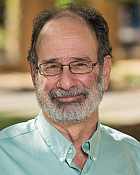A matching market is like marriage — both sides have to choose each other: Alvin Roth
Subodh Varma,TNN | Jul 5, 2015,
I post market design related news and items about repugnant markets. See my Stanford profile. I have a forthcoming book : Moral Economics The subtitle is "From Prostitution to Organ Sales, What Controversial Transactions Reveal About How Markets Work."


Member’s Bill will boost financial support for organ donorsThursday, 25 June 2015, 2:43 pmPress Release: New Zealand National Party |
 Professor Alvin Roth won the Nobel Prize for economics partly for his work helping match willing donors with those who need kidney transplants.
Professor Alvin Roth won the Nobel Prize for economics partly for his work helping match willing donors with those who need kidney transplants. |
 |
 |
Alvin Roth is the McCaw professor of economics at Stanford University and co-recipient of the 2012 Nobel Prize in economics. Roth is one of the world’s leading experts in the fields of market design, game theory, and matching markets. He has designed several of those markets, including the system that increases the number of kidney transplants by better matching donors to patients, the exchange that places medical students in residencies and the New York City and Boston school choice systems.
|
 |
Peter Passell is editor of the Milken Institute Review, the Institute's economic quarterly. A senior fellow, Passell was previously an economics columnist for the New York Times, a member of the Times' editorial board and an assistant professor at Columbia University's Graduate Department of Economics. Passell has written for publications including the Washington Post, the New Republic, the Nation, American Economic Review and the Journal of Political Economy. Passell received his Ph.D. in economics from Yale University.
|
"Who Gets What — and Why: The New Economics of Matchmaking and Market Design" will be for sale after the Forum, and Roth will be available to sign copies.
This event is open to the public, although registration is required. Reserved seating is available for Milken Institute Associates. If you are not currently a member of the Associates and would like to join or receive more information, click here. Parking is not available at the Institute. Free parking for 90 minutes is available in Public Parking Lot No. 1 on Fourth Street, adjacent to our building.
This Forum is part of our effort to present multiple perspectives on current business and public policy issues. Videotaping, recording or photographing this event is prohibited without the prior approval of the Milken Institute.
***********
A funny thing about this interview is that I recall reading Peter Passell's 'Economic Scene' column in the NY Times when he seemed to be one of the few economic journalists who was an actual economist. Here's the last of those columns he wrote for the Times, which still reads very well today.
By Peter Passell Published: August 13, 1998 |